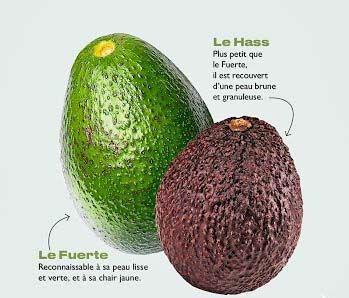Avocado: Toxic but how much?
-
Analyze and comments
I saw a post titled “Why are avocados bad?”, here on this link:
https://bioenergetic.forum/topic/6888/why-are-avacodos-bad
Avocado: Toxic but how much?
See the interrogation mark.
I would like first to point out that all polysaturated oils are immuno-suppressive.
W9 > W6 > W3. Omega-3 being the worst.
Let me recall this: “Only the dose makes a thing is not a poison.” Paracelsus. Presented differently: only the dose makes a food toxic.
When I read “Avocados contain so much unsaturated fat that they can be carcinogenic and hepatotoxic”, I tried to understand what about we were talking. Oil or fruit? Extract or … What else?
So I’ve read the link given. About oil. As I do not intend to consume avocado oil, I focused then on avocado fruit.
I‘ve found this: http://www.ncbi.nlm.nih.gov/pubmed/11368579
J Agric Food Chem. 2001. Liver injury suppressing compounds from avocado (Persea americana). Kawagishi et al.
“Fruit extracts exhibit chemo-protective potentiality against cyclophosphamide induced genotoxicity in human lymphocyte culture.”
=> Alarm signal because these extracts induce cell cycle arrest, inhibit growth. I don’t like the word “inhibition” because of possible side effects (dose). But we are still talking about extracts. No fruits. Vertical filing (Trash can).
The only study on fruits eaten:
http://www.ncbi.nlm.nih.gov/pubmed/11368579
J Agric Food Chem. 2001. Liver injury suppressing compounds from avocado (Persea americana). Kawagishi et al.
To evaluate the protective activity of fruits against liver injury, 22 different fruits were fed to rats with liver damage caused by D-galactosamine, a powerful liver toxin. As measured by changes in the levels of plasma alanine aminotransferase (ALT) and aspartate aminotransferase (AST), avocado showed extraordinarily potent liver injury suppressing activity. Five active compounds were isolated and their structures determined. These were all fatty acid derivatives, of which three, namely, (2E,5E,12Z,15Z)-1-hydroxyheneicosa-2,5,12,15-tetraen-4-one, (2E,12Z,15Z)-1-hydroxyheneicosa-2,12,15-trien-4-one, and (5E,12Z)-2-hydroxy-4-oxoheneicosa-5,12-dien-1-yl acetate, were novel.Personal: conclusion: I still eat half an avocado with a salad, half an apple, season berries and sometimes shrimps (crevettes grises).
Renewed conclusion: I still eat half an avocado with a salad, half an apple, season berries and sometimes shrimps (crevettes grises). But less often now.
To keep the other half avocado remaining fresh (not oxidized), I leave the nucleus in the half avocado, in the fridge, till next day + half lemon friction passage (not brownish, so)
Let me repeat it again: NO oil is good for health. Fruit is something else, with moderation.How much and what kind of PUFA in an avocado fruit?
A black avocado, medium size is +/ 200 g.
Avocado Nutrition: A medium avocado weighs 202 g and provides 322 K/cal per 100 g.
G18 P4 L30
Fiber 13.4 g
84 mcg of Vitamin A (14 RAs)
124 mcg of beta-carotene (from zeaxanthin, alpha-carotene, and beta-carotene, three other carotenoids, and tocopherol).
RA = Retinol Activity Equivalent. 1 μg RA = 1 μg of retinol = 6 μg of beta-carotene
Source: Canada santéFat 14.7 g per 100 g fruit
- saturated 2.1 g
- Monounsaturated 9.9 g
- Polyunsaturated 1.8 g of which omega-3 0.1 g (index 13.3 according to nutrition.fr)
Source : Passeport Santé
Useful Info: Different Types of Avocados
What you need to know in practice is that fruits from the Caribbean subgroup (sometimes referred to as "Florida avocados" because, in that state, mostly varieties from this subgroup are grown) can contain up to half as much fat as those from other groups. Unfortunately, this information doesn't appear on commercially available products (fresh or frozen). In any case, the Hass variety, which belongs to the Guatemalan subgroup and whose fruits are particularly rich in fat, is the most common type found in our European markets. The Hass avocado has a rather dark skin, tending between brown and black, not green.
In Florida, two varieties of avocados are commonly grown: Hass avocados and Florida avocados. Hass avocados are characterized by their rough, dark skin, oval shape, and creamy flesh. “Florida avocados”, on the other hand, are larger, have smooth, green skin, and less oily, firmer flesh, said to be ideal for salads.
Figure: Hass avocado >< Fuerte (green one)

Sources and References- RP assessment:
Peat said avocados are hepatotoxic, toxic to the liver.
http://raypeat.com/articles/articles/vegetables.shtml
=> “Avocados contain so much unsaturated fat that they can be carcinogenic and hepatotoxic.” - Oil study
Ann Nutr Metab 1991;35(5):253-60. Effect of dietary avocado oils on hepatic collagen metabolism. Wermam MJ, Mokady S, Neeman I Department of Food Engineering and Biotechnology, Technion - Israel Institute of Technology, Haifa.
http://www.ncbi.nlm.nih.gov/pubmed/1776821
=> Rats and chickens fed unrefined avocado oil showed a significant decrease in total collagen solubility in the liver. - Oil study
http://www.zhion.com/herb/Avocados.html
Rats fed with unrefined avocado oils showed significant increases in soluble collagen content in skin.
Though there are indications (above) that avocado may damage the liver by collagen formation, Japanese researchers have shown the protective effects of avocado on liver injury caused by D-galactosamine. [20]
[20] Kawagishi H, et al Liver injury suppressing compounds from avocado (Persea americana). J Agric Food Chem. 2001 May;49(5):2215-21.
http://www.ncbi.nlm.nih.gov/pmc/articles/PMC3249906/
=> Persea americana Mill. (avocado) is a tree, native to central America, cultivated in tropical and subtropical climates around the world, belonging to the family Lauraceae, is widely used in Ayurveda and evidence-based phototherapy. - Avocado fruit study
http://www.ncbi.nlm.nih.gov/pubmed/11368579
J Agric Food Chem. 2001. Liver injury suppressing compounds from avocado (Persea americana). Kawagishi et al.
To evaluate the protective activity of fruits against liver injury, 22 different fruits were fed to rats with liver damage caused by D-galactosamine, a powerful liver toxin. As measured by changes in the levels of plasma alanine aminotransferase (ALT) and aspartate aminotransferase (AST), avocado showed extraordinarily potent liver injury suppressing activity. Five active compounds were isolated and their structures determined. These were all fatty acid derivatives, of which three, namely, (2E,5E,12Z,15Z)-1-hydroxyheneicosa-2,5,12,15-tetraen-4-one, (2E,12Z,15Z)-1-hydroxyheneicosa-2,12,15-trien-4-one, and (5E,12Z)-2-hydroxy-4-oxoheneicosa-5,12-dien-1-yl acetate, were novel. - Avocado fruit study
http://www.ncbi.nlm.nih.gov/pubmed/22070054
J Exp Ther Oncol. 2011. Avocado fruit (Persea americana Mill) exhibits chemo-protective potentiality against cyclophosphamide induced genotoxicity in human lymphocyte culture.
Paul R. et al.
Diets rich in fruits and vegetables have been associated with reduced risks for many types of cancers. Avocado (Persea americana Mill.) is a widely consumed fruit containing many cancer preventing nutrients, vitamins and phytochemicals. Studies have shown that phytochemicals extracted from the avocado fruit selectively induce cell cycle arrest, inhibit growth, and induce apoptosis in precancerous and cancer cell lines. Our recent studies indicate that phytochemicals extracted with 50% Methanol from avocado fruits help in proliferation of human lymphocyte cells and decrease chromosomal aberrations induced by cyclophosphamide. Among three concentrations (100 mg, 150 mg and 200 mg per Kg Body Weight), the most effective conc. of extract was 200 mg/Kg Body Wt. It decreased significant level of numerical and structural aberrations (breaks, premature centromeric division etc. up to 88%, p < 0.0001)), and accrocentric associtation within D & G group (up to 78%, p = 0.0008). These studies suggest that phytochemicals from the avocado fruit can be utilized for making active chemoprotective ingredient for lowering the side effect of chemotherapy like cyclophosphamide in cancer therapy.
-
You're still glossing over and ignoring what I posted (what is the point of making a new thread about this instead of just replying in the linked one?) is that Ray citing that very study you've posted above (which I don't post links to because t I am quite lazy) directly contradicts the claim that it is the PUFA that makes avocados potentially toxic.
Not to mention that is besides the point that no other studies I came across reproduced the toxicity effects, in fact most if not all of the other studies I saw showed everything from the avocado fruit to the seed are protective. Even the authors of the liver collagen solubility study showing avocado tended to promote fibrosis say they are surprised at their result because their previous study in skin showed the opposite effect. For Ray to cite it in the first place as proof that PUFA from avocado is toxic is hilarious because the actual study SPECIFICALLY proves in that study that it IS NOT the fat portion of the avocado oil causing the increased potential for liver fibrosis, because they tested both unrefined and refined avocado oil and the refined (pure fat with all other portions removed) DID NOT cause the tendency for increased fibrosis, while the unrefined did. So it is something else other than the fat that is causing the issue IN THAT STUDY (emphasis here because no other study reproduced it).
AGAIN, this is beside the point THAT EVERY OTHER STUDY shows avocados and even the avocado seed being protective against inflammation and actually helping the mitochondria withstand stressors.
Ray calling avocados toxic, especially against the context of the two studies he cites in that vegetables article, and peatarians running with it for years, not questioning it, nobody posting about this plain contradiction and erroneous usage of citation, is honestly embarrassing. Danny Roddy who apparently is le Ray Peat expert never caught this or called him out on it. This is a guy who charges people money for his 'expertise' on bioenergetics. Neither of the citations Ray provides about avocados in the article support his claim that the PUFA fat is what makes avocados toxic and in fact the specific one that actually deals with toxicity (because the other study on Congolese women breast-feeding is even less relevant) actually proves the opposite of his claim.
This is all really funny. Zero shade on Ray from me btw. I'm just pointing out that this seems like an obvious error, bad citation, maybe Ray is just being loose with his anti-PUFA bias.
I think normal amounts of natural whole food PUFA that a normal person who isn't weird or neurotic would eat is probably totally ok and even a net benefit. I'm talking like a handful of sunflower seeds or nuts or an avocado a few times a week.
I'm not gonna make a twitter thread about this to tag all the influencers, I'm not gonna post more about this. This information is for the conscientious people who don't follow the cult mentality and who can think for themselves.
-
You are not the holder of the referenced post.
It's not possible to subtitle a second post to clearly orientate the reader.
You discussed the benefits of avocado, starting with avocado oil.
I wanted to present the studies on the oil and the fruit more clearly.
I didn't want to compromise the clarity of the presentation by issuing restrictions, otherwise the reader would have been distracted, more focused on the fact that there was no consensus.
When there is opposition, half of the readers hesitate and don't take a position.
Furthermore, I found your argument on RP to be excellent. No need to add anything.
I do not wish to continue this discussion here.
I'm the holder of this post, and therefore have more latitude to guide the discussion. -
@LucH xD
-
 L LucH referenced this topic on
L LucH referenced this topic on